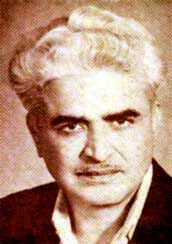Javed Akhtar was born on 17th Jan 1945 in Gwalior. His father Jan Nisar Akhtar was a Bollywood film songwriter and Urdu poet, and his mother Safia Akhtar was a singer, teacher and writer. He spent most of his childhood and was schooled in Lucknow. He graduated from Saifiya College in Bhopal
When Javed Akhtar arrived in Mumbai in 1964, he was a homeless man without any food or shelter. He struggled to find work in the Hindi film industry. He used to sleep under trees, or in corridors, until he took shelter in Kamal Amrohi Studio in Jogeshwari.
Initially he started working as a Clapper Boy in films,he met Salim Khan for the first time while filming ‘Sarhadi Lootera’, where Salim was an actor and Javed was a clapper boy. Javed was later made the dialogue-writer of the film as director SM Sagar was unable to find one.
He was offered to write a screenplay by Mr Devar of south for his south remake in hindi,he went to Salim Khan to join him for this film as a script writer.Later both were hired by G. P. Sippy's Sippy Films as resident screenwriters and produced the screenplays for successful films like Andaz, Seeta Aur Geeta, Sholay and Don.
Their first big success was the script for Andaz, followed by Adhikar (1971), Haathi Mere Saathi andSeeta Aur Geeta (1972). They also had hits in Yaadon Ki Baaraat (1973), Zanjeer (1973), Haath Ki Safai (1974), Deewaar (1975), Sholay (1975), Chacha Bhatija (1977), Don (1978), Trishul (1978), Dostana (1980), Kranti (1981), Zamana (1985) and Mr. India (1987). They have worked together in 24 films including two Kannada films – Premada Kanike and Raja Nanna Raja. Of the 24 films they wrote 20 were hits.They described as "the most successful scriptwriters of all-time", are also noted to be the first scriptwriters in Indian cinema to achieve star status. Javed and Salim split in 1982 due to ego issues.
He was aproached by Yash Chopra in 1981 to write Lyrics for his film Silsila,that was the first film when he emerged as a successful Lyricist.It was in 1997 film Saaz where he recieved his National Award for the Best Lyricist and first Filmfare Award for Best Lyricist in 1995 for "Ek Ladki Ko Dekha" from 1942: A Love Story.
Javed and his first wife Honey Irani, whom he met on the sets of ‘Seeta Aur Geeta’, share the same birth date, January 17,with whom he had two children, Farhan Akhtar and Zoya Akhtar, both film directors and actors.Javed divorced Irani and later married Shabana Azmi, the daughter of another Urdu poet, Kaifi Azmi.
Javed Akhtar has won the Filmfare Award fourteen times - seven times for Best Script, and seven times for Best Lyrics. He has won the National Award five times. In 2013, he received the Sahitya Akademi Award in Urdu, India's second highest literary honour, for his poetry collection ‘Lava’. He is also a recipient of the Padma Shri (1999), Padma Bhushan (2007).He was a Rajya sabha M P from 2009 to 2015.
Listen & Enjoy the Magical Lyrics of Javed Akhtar. On his 72nd Birthday,
Song from Silsila 1981
Song from Saath Saath 1982
Song from Saagar 1985
Song from Tezaab 1988
Song from 1942 A love Story 1994
Song from Papa Kehte Hai 1996
Song from Saaz 1996
Song from Border 1997
Song from Yes Boss 1997
Song from Duplicate 1998
Song from Refugee 2000
Song from Lagaan 2001
Song from Kal Ho Na Ho 2003
Song from Main Hoon Na (2004)
Song from Veer-Zaara (2004)
Song from Kabhi Alvida Naa Kehna 2006
Song from Jodhaa Akbar








